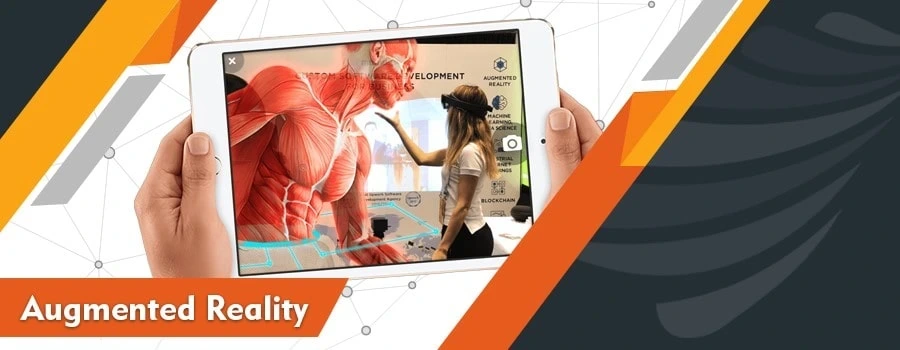“Physical Reality Turns into Visual World!”
Augmented Reality (AR) is a concept of a modified version of the physical existence that intensifies through digital visualization, sound effects, and other technical elements. However, the growth of AR creating a new hype among the Technology-based business, Computing applications development, and retailers to promote their products or services.
Augmented Reality vs. Visual Reality:
To improve the experience, Augmented Reality (AR) uses the current real-world environment and overlays virtual information on top of it.
On the other hand, Virtual Reality (VR) enriches users by permitting them to “inhabit the world” a completely new environment, namely, to be built and simulated by computers. Customers can be engulfed in an animated scenario or a snapshot of a real-life area.
Augmented Reality (AR) Gaming:
Augmented Reality contains unique data collection and analysis; widely used in game development applications to merge the physical world with digital visualized life. AR gaming is the integrated version of sound effects, audio content, and visuals created in the user’s environment in real-time. On the other hand, Visual Reality (VR) required a separate room to develop a digitalized environment that does not work in the real world.
The mobile game Pokémon Go, introduced in 2016 and soon became an inescapable phenomenon, is the most renowned example of AR technology. Pokémon figures appear in the real world—on your sidewalk, in a fountain, even in your own bathroom—and players must discover and capture them.
Cyber Security Risks:
Like the other advanced version of Internet of Thing (IoT) devices, AR Gadgets are also vulnerable to hazards; since all the IoT devices communicate with the internet (i.e., Internet is known as an untrusted network). The classified risks are the vulnerabilities that can be attacked easily. The key issues of cyber security are maintaining the data’s confidentiality, integrity, and availability.
Unlike other software programs that operate on several platforms, the AR outsourced company could not guarantee data security or confidentiality. The code development of the apps is frequently riddled with security breaches, making them vulnerable to data attacks.
The concept of IoT and Cyber security required a mentioning engagement to enhance the technologies advancement. As the AR conceptual architecture, conducting the lack of privacy and security and increases the security breaches. AR Architecture introduces and enhances the policy for modules input and output to secure the process of developing AR applications. It may assist, reduce the risks in such a manner that they do not affect AR platform users in the future.
To protect consumers from the cyber security threats associated with the augmented reality environment. The policy modules must standardized and introduced alongside new, developing AR services and devices.
To summarized, augmented reality (AR) is a highly visible, interactive technique of displaying important metadata in the context of the actual world, which helps clients connect and improve business outputs.
By overlaying digital material onto real-world work settings, industrial augmented reality provides a better approach to design and provides easily digestible job instructions.




